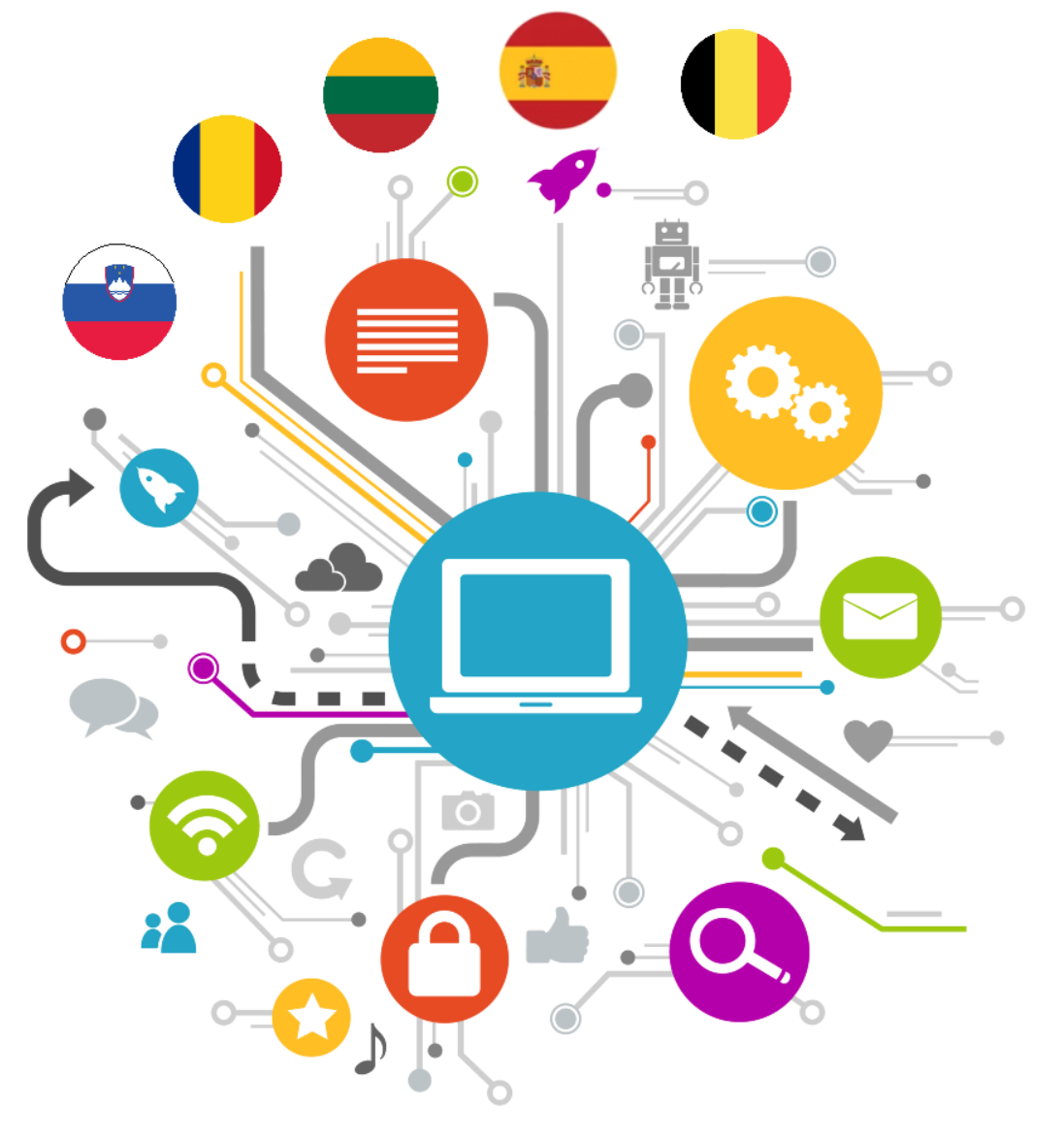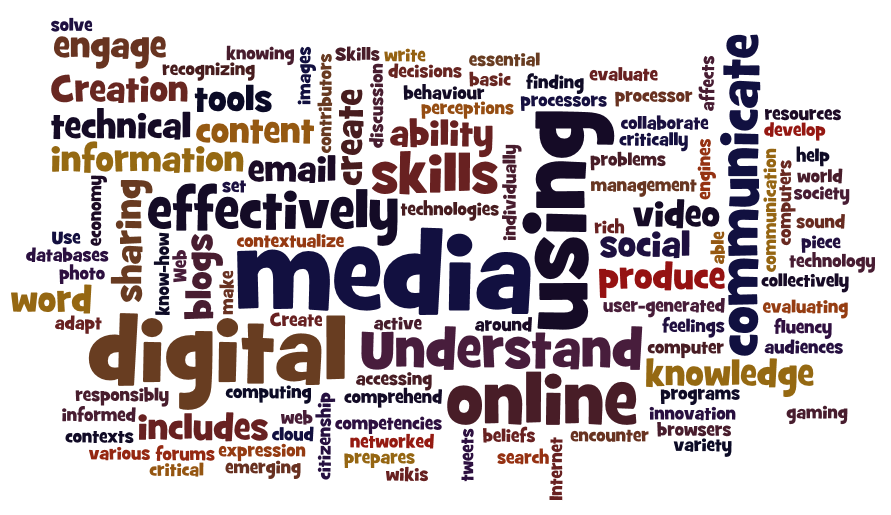Digital Competences
Our Project Focuses on the 6 Most Relevant Digital Competences from DigComp v2.2 for Advanced Digital Skills and Higher Education
Image source: topteen.in
1.1 Browsing, searching, and filtering data, information, and digital content are essential skills for effectively finding and using online resources. For example, understanding how to use search engines efficiently and knowing how to sort through large amounts of data can greatly improve research and productivity.
1.3 Managing data, information, and digital content involves organizing and storing data securely and accessibly. This includes using cloud storage solutions, both public and private, to ensure that important information is safely backed up and can be retrieved when needed.
2.4 Collaboration through digital technologies is key to working effectively in teams. Using tools like Content Management Systems (CMS) allows multiple people to work on the same project, share updates, and manage tasks, regardless of their physical location.
3.1 Developing digital content means creating various types of media, such as text, images, and videos, using different tools. This includes using software for graphic design, video editing, and web development to produce high-quality digital materials.
4.2 Protecting personal data and privacy involves taking steps to keep personal information secure. This includes using electronic signatures for document verification and being aware of common threats like phishing and ransomware to prevent unauthorized access to data.
5.1 Solving technical problems requires troubleshooting and fixing issues with digital tools and technologies. For example, learning to use 3D printers to create prototypes or parts can help in resolving specific technical challenges in various fields.
What is Digital Competence Framework for Citizens (DigComp 2.2)?
Image source: EU DigComp framework
The Digital Competence Framework for Citizens (DigComp) provides a common understanding of what digital competence is.
“…the confident, critical and responsible use of, and engagement with, digital technologies for learning, at work, and for participation in society. It is defined as a combination of knowledge, skills and attitudes.” (Council Recommendation on Key Competences for Life-long Learning, 2018).
DigComp 2.2 areas
DigComp identifies the key components of digital competence in five areas and 21 specific competences. The framework also describes eight proficiency levels, examples of knowledge, skills and attitudes, and use cases in education and employment contexts. This structured approach helps individuals understand and develop their digital skills effectively.
The five key areas identified by DigComp 2.2 are:
- Information and Data Literacy
- Communication and Collaboration
- Digital Content Creation
- Safety
- Problem-Solving
Each area includes specific competences that detail the essential skills needed for effective digital literacy. This framework is designed to be used by educators, employers, and policymakers to support digital skills development across various sectors.
Enroll in Our Free Digital Competences Course!
Free digital competence course
Boost your digital skills with our comprehensive and free course on digital competences! Whether you’re a student, educator, or professional, our program is designed to help you navigate the digital world with confidence and proficiency. Learn essential skills such as data management, digital collaboration, content creation, and online safety.
Why Join?
- Free Access: Gain valuable skills at no cost.
- Expert-Led Training: Learn from experienced educators in the field.
- Flexible Learning: Study at your own pace with our online platform.
- Industry-Relevant Skills: Enhance your career prospects with up-to-date digital competences.
Click the link below to sign up now and start your journey towards digital competences mastery!











